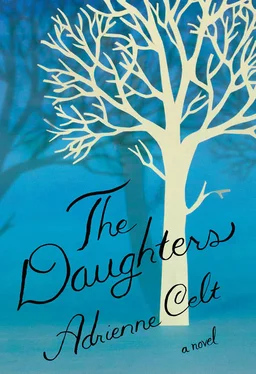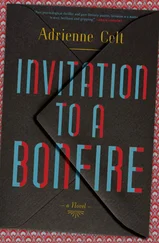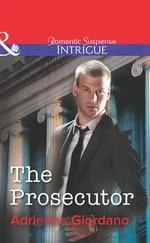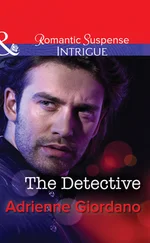Immediately I knew: something was different. I was so surprised that I hit my head as I pulled it back in and felt my tongue gulp up against the roof of my mouth. In the safety of my room’s four walls, I turned and sang the same few notes, feeling the air rush up from my lungs and strum through my throat. My eyes widened as I listened. Inside, the notes ricocheted like pinballs, without room to open up and spread out. But outside, the sound had space to flex. A C might waver and become a D as it hit a patch of wind and lifted into the sky. A high note, instead of sounding slightly bossy, was clear: it cut like a knife through the traffic and barking dogs.
In a different house I might have been encouraged to take on a wide range of activities. Maybe, seeing my interest in the urban wildlife in our yard, the kind caretaker in my alternate universe would have bought me books on anatomy and helped me articulate the skeleton of a vole from an owl pellet cleaned in ammonia. I could have attended ballet lessons and enrolled in the Girl Scouts, extending my toes into a perfect pointe and earning merit badges for insect identification and a facility for starting fires.
Idly speaking, it sounds nice. But it would have been the wrong approach with me. I’m not the sort of person who benefits from having her excess enthusiasm drained, and I was never the sort of child who got bored easily. It’s true that I had a lot of energy. But it wanted focus, not dispersion. If I’d been taught wilderness survival skills, I might be a feral arsonist by now.
Ada knew just what to do with me because she anticipated my love of music before I was ever born. When my mother, Sara, was pregnant and woozy with size, Ada sat her down next to a record player and let Chopin’s nocturnes rumble through her. She played Polish composers first — Paderewski minuets, Lutosławski concertos — but soon realized that I moved around more to vocals.
“It gives me heartburn,” Sara complained. Apparently I had a special fondness for Mozart and Dvořák and expressed this affinity through acrobatics. I know now what it feels like to be stretched to capacity — a drum skin, a bulging bag — and have your passenger decide to start kicking, so I can imagine my mother’s troubled expression as she readjusted to move her ribs out of the line of fire. She would’ve been reclining on pillows, sipping tea. At some point, when Ada wasn’t looking, I’m sure she reached down and gave me a few sharp flicks.
With or without my mother’s explicit approval, my cells were coaxed together in arpeggios and crescendos. I was born, much to Sara’s dismay, with a large head and a strong jaw, giving my very first scream a breadth and tonality that stopped my doctor in his tracks.
So I’m told. My baba Ada was always big on stories. And her chronicles leaked into my life before I was even conceived, even considered, by way of the people who lived them.
A da recounted her stories with the unwavering faith of a missionary, and so as a child I never questioned how she came to know so much about what her mother thought and said and did in her absence. The stories about Greta and Ada just existed, they just were , like Baba Yaga and the Dragon of Krakow and Peter Rabbit. I cried at night for more Greta, just one more Greta , in the small purple bedroom where I discovered my voice, where poster versions of Lucia Popp smiled her pristine soprano smile down at me under a bouffant hairdo.
Greta’s story followed a path that wound and split like a road on a map. It diverted into variations, forded streams, ducked through trees. You could step off it and run any number of directions, but eventually, no matter how far you wandered, it ended up in the same place.
A woodland clearing marked with a dark cross.
A blue girl, unbreathing, wrapped up in a shawl.
And here’s where the story always started.
“There was a party.” Ada perched on the edge of my bed, one knee balanced neatly on the other. I settled beneath the covers and could see the threads of the narrative occurring to her: inspiration weaving together with myth, the certainty of the tale mingling with surprise. “The fabryka Łozina, the factory of pianos, invited all the young people by to hear the voice of their instruments and to dance.”
She repeated herself often, looking for just the right word. Drifted between English and Polish so that from her mouth I heard them both as the same language.
“A large room. A hall. A loft.”
Her tongue tripped from the l of loft to the f in a broad arc, as though saying lolly or lopped, halfway to loop. I was thirsty, but I didn’t want to ask for water. If Ada got up, she’d fuss around about something. Find that all the glasses in the kitchen were dirty and tie an apron on with a sigh. Or she’d come back with the water but lose the thread of the story and maddeningly embark on something different. The spit in my mouth was heavy and thick, and every time I swallowed I felt my throat getting drier. But I wrapped myself around Ada’s arm and leaned my weight into her. Listening.
She stroked my hair, and then she truly began.
“Someone had swept the wooden floor so it was as clean as it would ever be. The window was tall, kolosalne , prodigious. Let us look at it. The harvest moon glinting through the glass. Snips of wire lit up around the room by the moon’s beams. Like fireflies.
“Then what do we see? The doors open up and in rush the young people, stamping their feet in excitement. Hitting each other with an elbow, a knee, in their hurry. Young people are always in a hurry, you see, and sometimes it gets them where they’re going faster than they ought to go.”
Ada smoothed her skirt.
“But our young people didn’t know that. They rushed from place to place and looked around. The boys huddled over a table of apples and bread, adjusting their ties, while the girls swarmed and dispersed with — well. They were light on their feet and they chattered. They followed the same logic as birds.
“By chance the bird girls were all wearing blue dresses, and each of the dresses was brand new.”
In my mind, these antic girls were clear, tugging at one another’s hems and judging the geometry of waistlines, the pristine nature of pressed fabric. Any piece of dirt or dust was carefully picked away by fingernails, which were themselves buffed and polished to a diamond gleam. I could hear the matching dresses flutter.
“Then,” said Ada, “came the music. There weren’t cassette tapes then, and no radio. So if you heard any music at all it was either an accident — walking by a lucky window — or the music was being played just for you. For your pleasure. In the fabryka there was a little bandstand, a stage, with a piano and a fiddle and a clarinet. The players looked into each other’s eyes to make sure they started playing at the exact same time. In the space of one heartbeat.
“The sound got under everyone’s skin, so the young people were terribly overexcited. A girl and boy cracked their heads together reaching for the same slice of apple, and the whole room burst out laughing. They didn’t know what to do with themselves.”
Ada unpeeled me from her arm and laid me back onto my pillow. Twitching her mouth into a secretive pout, she leaned an elbow on her knee, her chin on her palm.
“You’ll probably want to know, why were they so. provoked? Why was every heart beating so fast? The whole room was full of energy. The whole factory was. Up in the ceiling beams, there was a colony of little gray birds, little starlings, and when the musicians played they swept around the roof, going crazy. They beat their wings all at the same time, and the young people could feel the wind those birds stirred up.
Читать дальше












